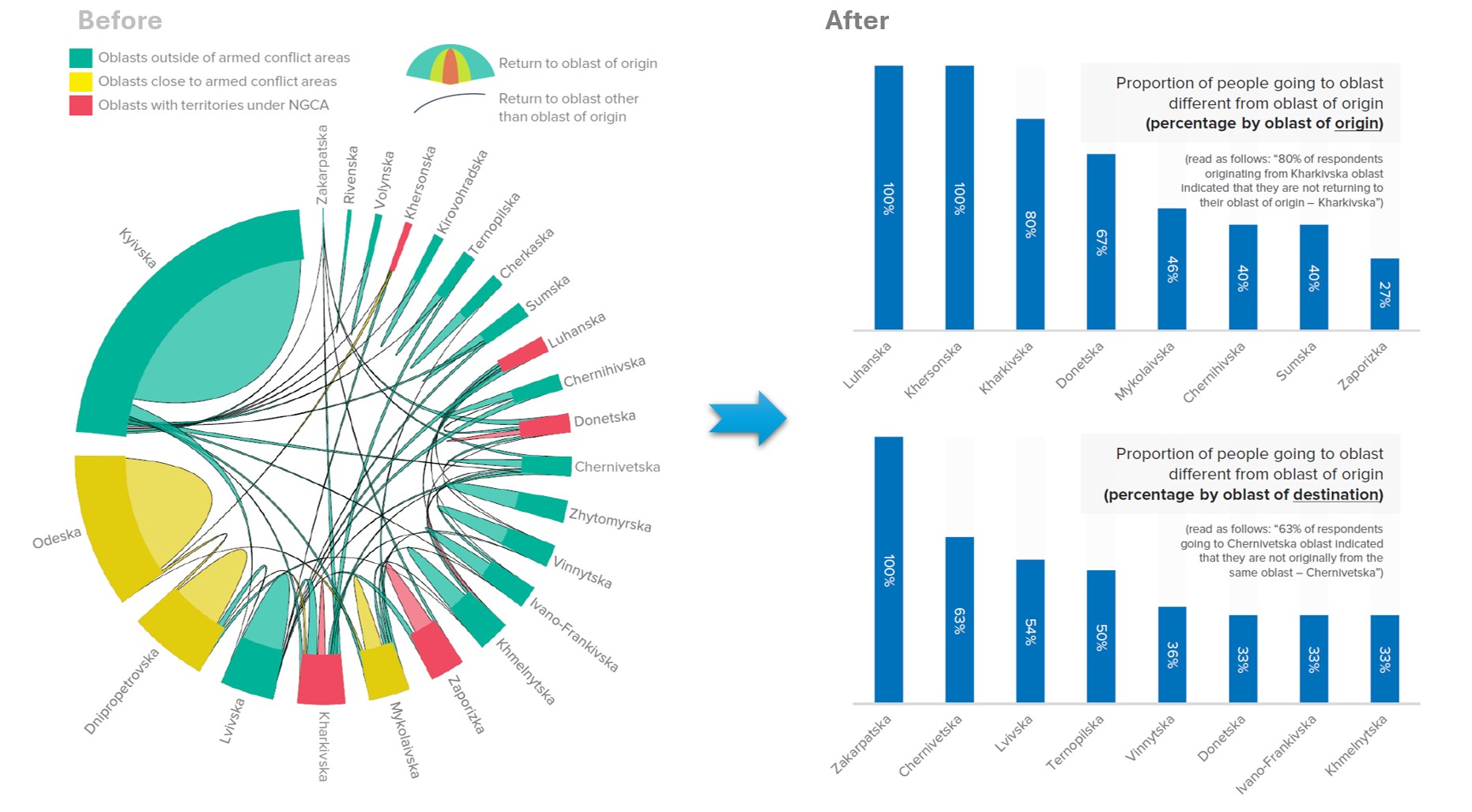Have you ever wondered whether you’re making decisions or just reacting to them?
In data and information management, as in life, there’s a fine line between being played and being a player. And there’s no better metaphor to explore this than “Chess”.
Being Played: The Pawn’s Perspective

When you’re being played, your vision is limited. You only see the immediate moves ahead, unaware of the bigger picture. Decisions are reactive, not proactive. As a pawn, you’re pushed by external forces and have little understanding of how your contribution fits into the larger strategy.
In data terms, this might look like:
- Collecting data without clear goals.
- Reacting to metrics without analyzing their context.
- Being stuck in silos, where decisions are made for you, not with you.
You’re moving square by square, not realizing the true impact of your actions – or inaction.
Even if you’re promoted to a stronger piece, like a bishop, rook, or even a queen, the essence remains the same – you’re still being played. Sure, you might move faster, farther, and with greater impact, but your actions are still dictated by someone else’s strategy or lack of it. Without the bigger picture, you’re still just a piece on someone else’s board.
Being a Player: Seeing the Bigger Picture

When you’re a player, you rise above the board. You see the full picture, understand the roles of each piece, and think strategically before making a move. Every decision is intentional and contributes to the long-term goal.
In data and information management, this means:
- Knowing how different datasets interact and contribute to outcomes.
- Prioritizing data quality and timeliness to stay ahead of the game.
- Anticipating challenges and planning proactively, rather than reacting under pressure.
Here, you’re not just in the game – you’re leading it.
The Lesson: Mastering the Data Chessboard
The transition from being played to being a player requires clarity, preparation, and strategy. Just like in chess, where every move counts, effective data and information management demands a combination of strategic thinking and tactical execution.
1. Know the Connections and Dependencies; In chess, a single move can alter the dynamics of the entire board. Similarly, in data management, each decision – what to collect, how to store, and when to analyze – has ripple effects on the outcomes. Just as a knight depends on its unique movement pattern and bishops cover each other’s weaknesses, you must understand how your datasets are interconnected and ensure that no critical gaps exist.
2. Combine Strategy with Tactics; In chess, strategy focuses on long-term goals, like controlling the center of the board, while tactics are the short-term maneuvers to gain an advantage. Info management operates the same way. Your strategy might involve building a robust data architecture or improving organizational data literacy, while tactics could include creating a quick visualization to support an urgent decision. Without balancing both, you risk either losing sight of the bigger picture or getting bogged down in daily firefighting.
3. Sometimes, Gambiting is Essential; A gambit in chess involves sacrificing a piece to gain a positional or strategic advantage. Similarly, in info management, there are times when sacrificing resources, time, or even certain datasets is necessary to achieve broader objectives. For example, prioritizing timeliness over completeness in emergency response may mean you sacrifice data precision, but the trade-off ensures timely action where it matters most. Knowing what to let go of – and why – is a skill every data manager must master.
The concept is explored further in “Killing the Goat”, which delves into the tough decisions often faced in life and work. Being a player requires clarity and courage to make those sacrifices when they matter most
4. Adapt and Think Two Steps Ahead; Chess players thrive on anticipation, planning for their opponent’s moves before they happen. Data managers, too, must anticipate challenges – whether it’s technological limitations, gaps in data literacy, or political resistance to sharing data. Thinking ahead helps you stay prepared and pivot when needed, rather than reacting under pressure.
5. Be Aware of Your Endgame; In chess, it’s not just about winning individual pieces; it’s about reaching checkmate. In data management, the endgame could be a well-informed decision, a strategic policy shift, or a successful humanitarian intervention. Keep the ultimate goal in sight, and let every move align with that objective.
Mastering the Board: Lessons in Action
While being played, you find yourself in your comfort zone. It’s a safe place – decisions are made for you, risks are minimized, and responsibilities are limited. Staying in this comfort zone is easy, but at what cost? Remember, the most valuable asset you have is your time. Wasting it by remaining stuck in a reactive, passive role is a loss you cannot afford.
Even more importantly, others will notice that you’re being played. They will recognize your lack of initiative or awareness. They won’t push you out of your comfort zone. Why should they? It doesn’t serve their strategy to make you a better player – it serves their strategy to keep you as a piece on their board.
The Challenge of Being a Player
When you decide to take control and become a player, the game changes. It’s no longer easy – it’s harder than ever. You must challenge yourself constantly. You’ll be required to analyze, strategize, and anticipate. And here’s something else: others will notice that, too.
When you step up to play, people will challenge you. They’ll criticize your weak moves, call out your blunders, and question your strategy. But that’s the beauty of being a player – you’re in charge of yourself. Criticism isn’t a setback; it’s a learning opportunity. Each mistake becomes a lesson, each challenge sharpens your skills, and each setback pushes you closer to mastery.
Mastery doesn’t mean perfection. It’s a continuous process of improvement, a mindset of learning and evolving. In chess – and in life – there’s always more to discover, new strategies to test, and better moves to make. The moment you think you’ve “figured it all out” is the moment growth stops.
As highlighted in “Never Aim to Become an Expert” embracing a mindset of lifelong learning is crucial. Being a player means constantly striving to improve, not settling for just being good
Just as chess grandmasters see the entire game unfold in their minds, successful data managers must envision the entire data lifecycle – from collection to decision-making. They must:
- Identify key pieces (critical datasets) and protect them.
- Balance offensive moves (proactively using data for strategic decisions) with defensive moves (ensuring privacy, security, and ethics).
- Recognize that sometimes, the best move is no move at all – waiting, analyzing, and acting only when the timing is right.
In chess, every piece has its role, but the player is the one who brings them together for a winning strategy. The same is true in data: the tools and datasets are just pieces, but it’s your strategic thinking that drives success.
The Power of Small Details
I think that “The difference between ordinary and extraordinary is in the small details”. When you become a player, you’re no longer stuck in the short-sighted view of a single piece – you begin to see the nuances of the board. You notice the subtle connections between your moves, the hidden opportunities others overlook, and the risks worth taking.
Being a player forces you to focus on these small details because, ultimately, they define the outcome of the game. Whether it’s a data strategy or a chessboard, success comes from focusing on every move, not just big actions in shiny events.
The Takeaway: Own Your Game, Own Your Time
Yes, being a player is harder. It takes courage to step out of your comfort zone and take control. But the rewards are immeasurable: you gain clarity and the ability to shape your outcomes. You’re no longer a pawn in someone else’s strategy – you’re the one creating the strategy.
The best way to predict the future is to create it. Sounds familiar, doesn’t it? By being a player, you’re not just shaping the game – you’re shaping the future.
Are you ready to leave your comfort zone, embrace the challenges, and become extraordinary?
Excited to hear your thoughts! If you’d like to jump into the discussion or share your insights, just follow this link, and let’s keep the conversation going:
https://www.linkedin.com/pulse/being-played-vs-player-alen-chalak-s47sf/?trackingId=%2FhzzxffUIL%2FOon08ixnsjA%3D%3D




